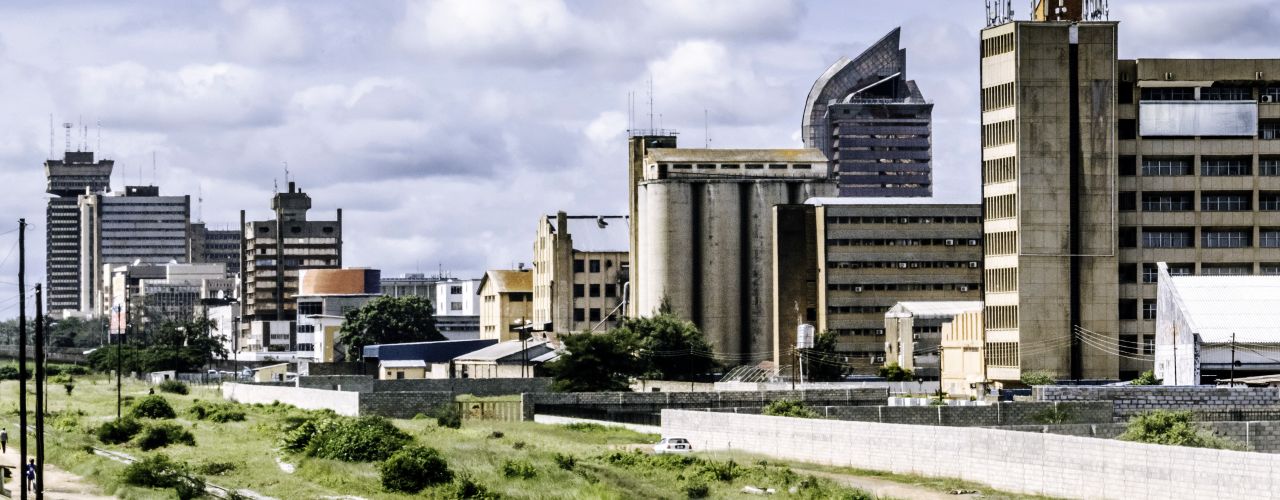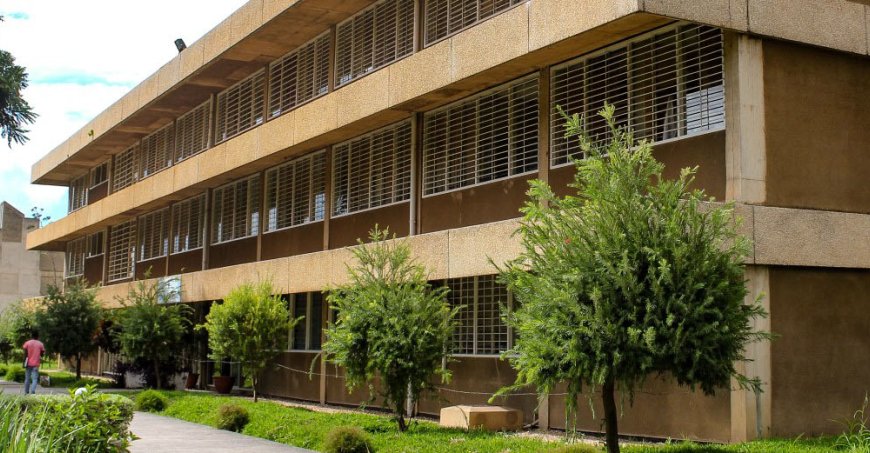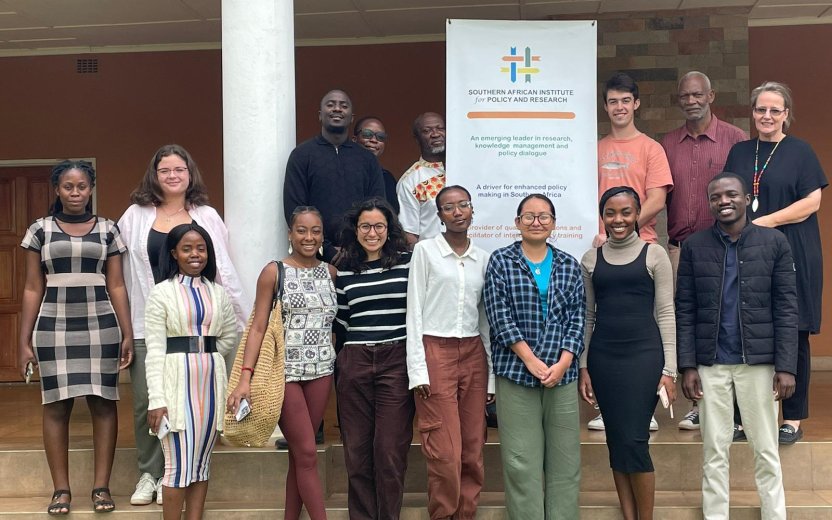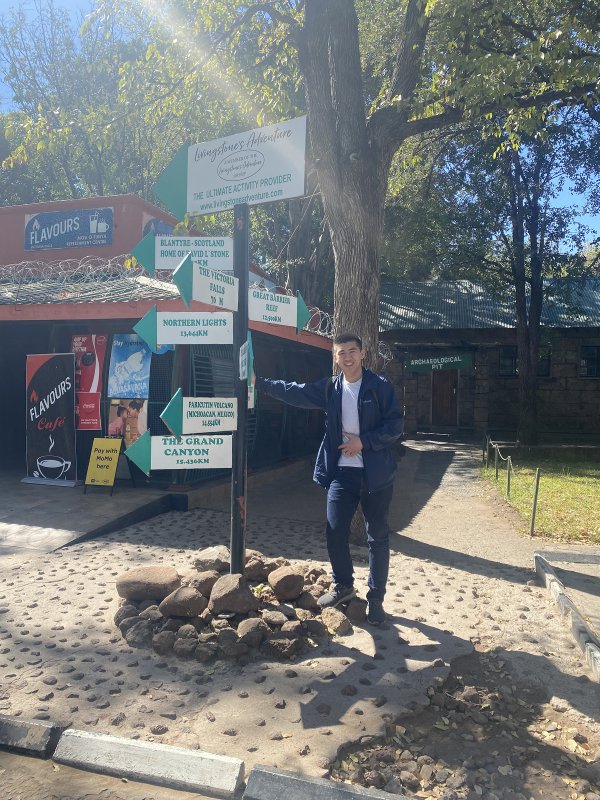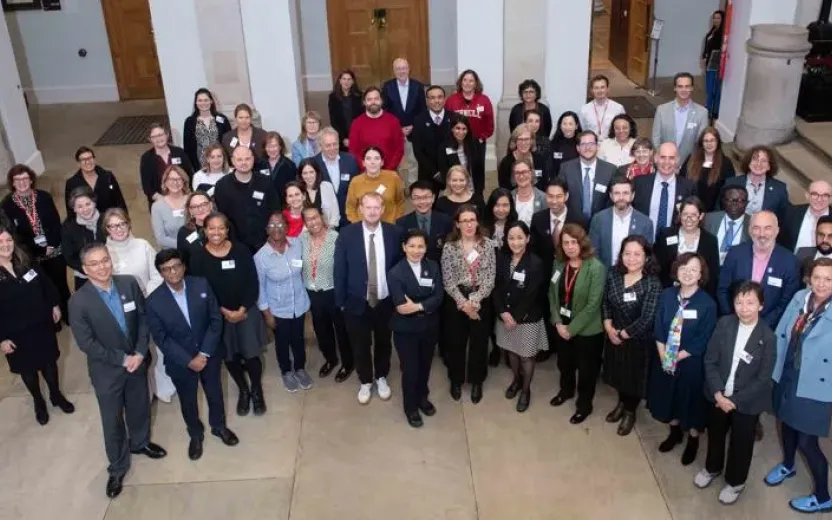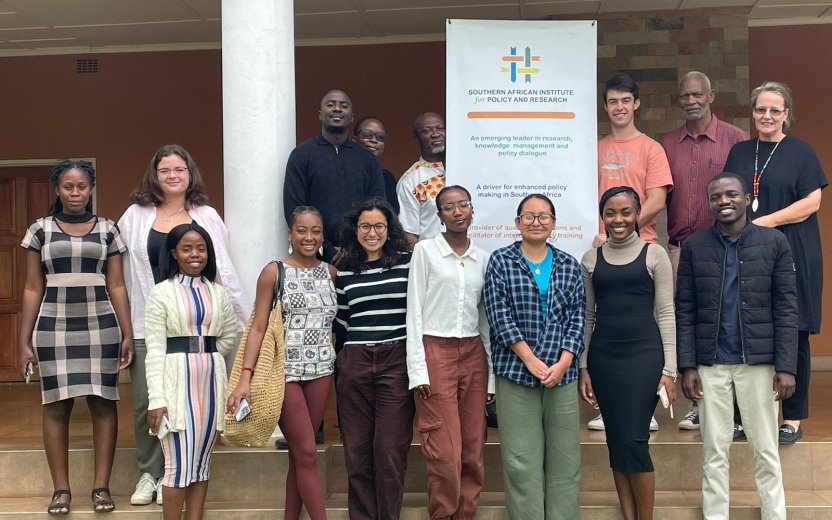Zambia
Hubs Partner: University of Zambia
Established in 1965, the University of Zambia (UNZA) is the country’s oldest and largest public university. Located in Lusaka, UNZA has grown from three founding schools to 13, including programs in medicine, agriculture, law, engineering, and public health. With 30,000 students, the university emphasizes academic excellence, regional impact, and collaborative research.
New Research Collaborations Receive Funding
Joint research seed grants connect Cornell faculty with researchers at Global Hubs partners around the world. This year's awards foster over 40 new collaborations, including three with UNZA.
Cornell-Zambia Joint Research Seed Grant Awards 2024
"Validation and Transfer of Antibody Neutralization Assays for Rotavirus Vaccine Research in LMIC" | Sarah Caddy (Cornell) and Masauso Phiri (Zambia)
"Interdisciplinary Approaches to Addressing and Eradicating Xenophobia" | Beth Lyon (Cornell) and O'Brien Kaaba (Zambia)
"Promotion of Traditional and Underserved Crops: African Eggplant Landrace Collection and Farmer Survey in Zambia" | Gregory Vogel (Cornell) and Kalenga Banda (Zambia)
Student Experiences
Hub partnerships have enriched students' academic and pre-professional experiences and expanded their opportunities to engage inside and outside the classroom.
Cornell's colleges of Agriculture and Life Sciences and Human Ecology have sent students to study at UNZA.
Navigating Identities Abroad
Six students participated in the winter 2024 short-term program in Zambia, “History and Politics of Southern Africa.”
For Eva Telesca ’25, it was a transformative experience. Learning outside the classroom setting provided Telesca with options for a new form of academic rigor and an opportunity to explore gender norms in another country. While living with a host family, Telesca navigated gender roles and dynamics that were different from her norm by respecting differences, studying the Nyanja language, and using generative listening techniques. Read about her experience.
Global Internships Offered Through IAD in Zambia
Partners in Zambia sponsor Global Internships through the Institute for African Development, part of the Mario Einaudi Center for International Studies. These opportunities reinforce academic learning by allowing undergraduates to conduct research with individuals and organizations working in policy and program development in Africa.
Explore study abroad experiences at Global Hubs
Faculty Forward
Cornell Faculty Lead: Muna Ndulo
William Nelson Cromwell Professor of International and Comparative Law
Elizabeth and Arthur Reich Director, Leo and Arvilla Berger International Legal Studies Program
“Zambia is at the crossroads of southern Africa. UNZA educates leading thinkers, heads of state, activists, and academics of the region. I am enthusiastic about the collaboration between these two renowned institutions that foster research and knowledge development for the greater good. As a land grant university, Cornell is ably situated as a partner to further research and practice with counterparts at UNZA. Agricultural technology and natural resources and conservation are areas of research that will benefit from the partnership.”

